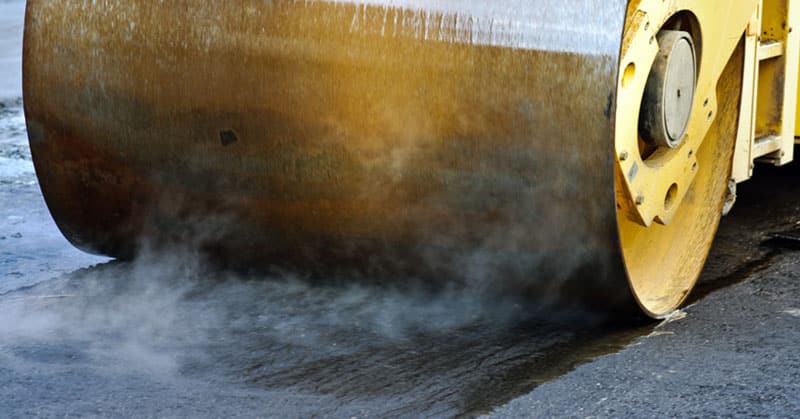When most of us think of asphalt, we probably envision modern-day highways and parking lots. But you may be surprised to know that asphalt has been around for a long time – for thousands of years, in fact! This remarkably durable mixture of aggregate, binder and filler is a popular paving material today for everything from roadways to walkways; from driveways to parking garages. But an earlier version of asphalt was used by ancient Greeks and Romans to provide waterproofing for water tanks and baths, and ancient Egyptians used asphalt to prevent erosion around the banks of the Nile! And a few hundred years later, by the 1500s, seafaring people used asphalt to caulk ships.
Some of the earliest paved roads were built in Scotland during the early 1800s. These roadways started out with a layer of broken stones, but builders later added hot tar to the stone surface – effectively creating the first paved roads. Later in the 1800s, the first “true” asphalt hot mix facilities were opened in the U.S. And two of the earliest asphalt projects in this country included roads in Newark, New Jersey, and Pennsylvania Avenue in Washington, D.C.
At the turn of the 20th century, the modern version of asphalt was patented by Frederick J. Warren, and it was made in an asphalt plant managed by the Warren brothers in Massachusetts. That asphalt mixture contained bitumen and aggregate – very similar to what we still use today! Transportation innovations that occurred in the 20th century necessitated the need for a durable asphalt mix that could be poured by machine. This resulted in the building of roadways for automobiles that spanned across the U.S., as well as runways for airplanes.
The composition of asphalt – as well as the method for installing it – continued to advance by leaps and bounds in the years that followed World War II. Equipment such as leveling devices and steel-wheel rollers greatly advanced the process of road and airport building in the 1950s. By the 1970s, paving companies became more environmentally minded and began recycling asphalt and including that into asphalt mixtures.
Today, asphalt continues to be used for a wide variety of purposes by everyone from homeowners to government entities and business owners. The durability, versatility, affordability and environmentally friendly nature of asphalt makes it such a popular choice. The next time you have a paving project that needs to be completed, be sure to contact a local asphalt paving contractor for an estimate!
